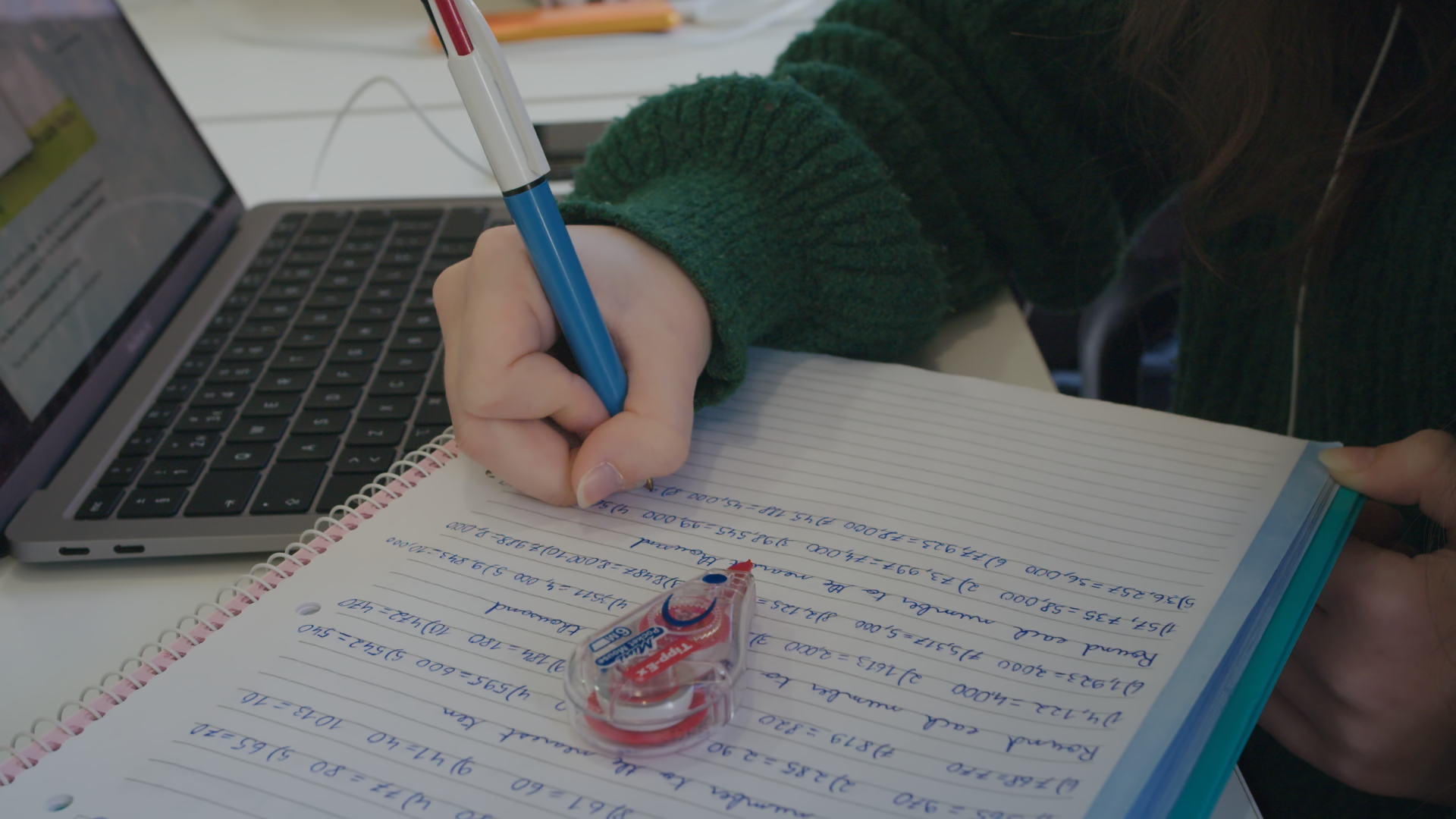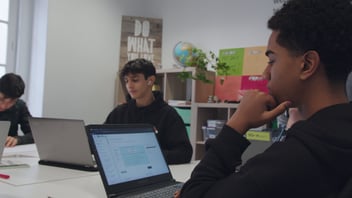“A Curriculum recognised by the world’s leading universities as the gold standard of international education, fully integrated with projects and courses, creating a holistic learning experience that prepares Learners for the future.” ~Brave Generation Academy
When considering BGA’s online academic platform, it is often questioned whether the courses are as comprehensive and effective as attending a typical classroom with a teacher. BGA’s hybrid educational model offers a new and alternative approach to traditional schooling which naturally raises queries regarding the standards and methods being applied. Parents and students may wonder if this approach really works, and rightfully so; the Learners are the primary focus and providing them with optimal opportunities is paramount for all concerned.
BGA Learners are offered an accredited academic education via a self-directed online platform which can be accessed from anywhere at any time. Learners can study at their own pace and structure rather than within the limited framework of a school timetable. BGA Learners are autonomous and therefore accountable for their own academic progress within their chosen subjects.
After understanding, appreciating, and accepting this aspect of the model, the more pressing question becomes the accessibility and quality of the academic content itself. Are BGA courses comprehensive enough? Will Learners receive sufficient education from the online platform to succeed in their chosen subjects? How do the courses encourage and sustain Learner engagement, and how do Course Managers oversee the learning process? In this article, we take a closer look at the structure, management, and quality of the BGA academic platform.
What is the role of a Course Manager (CM)?
At BGA, Course Managers (CMs) are key to ensuring that BGA's online platform is well developed, in line with subject specifications and requirements, and tailored to Learners' feedback and needs.
They are also responsible for grading and giving feedback on assignments, creating and grading Mock Exams, answering Learners’ questions, organizing live sessions according to Learners’ needs as well as constantly improving the course according to Learner performance.
How are CMs are selected for the position? Which qualifications are required?
CMs usually have previous teaching experience in teaching in the specific subject (e.g Maths) and ideally have previous experience with curriculum development and content creation. They also must have excellent interpersonal, organizational, and time management skills and the ability to work independently, in a very fast-paced environment. Notably, they are passionate about education and the power it has to change the world.
Are new courses regularly being added to the BGA platform?
The new courses being developed at present are primarily aimed at meeting legal requirements in countries in which we are expanding; Spanish as a first or second language, A-Level Further Mathematics, and Portuguese as a second language, for example. BGA’s current range of subjects is sufficiently comprehensive to meet entry requirements of almost all universities. If a Learner has a keen interest in a subject we do not offer, we encourage them to explore their passion outside the academic curriculum. Nevertheless, in the future, we plan to prioritize Learner demands and add courses based on request.
Who writes the academic material?
For some courses, our BGA Course Managers create the content entirely, while for others, external content writers draft the material which our CMs then adapt to fit the BGA structure. Additionally, CMs often incorporate material provided by exam boards into mock exams, assignments, and lesson plans.
BGA courses are continually updated and improved, with new assignments, videos, and resources added and adapted in response to Learners' feedback, research and academic updates. We also utilize a variety of external resources such as YouTube videos, lab simulations, and games, which we embed within the course structure to provide a multi-resource, interactive learning experience.
Ultimately, our main goal is to provide Learners with the best possible learning experience, leveraging a diverse range of already existing resources and methodologies to help achieve their goals.
How are the courses structured?
Our courses are organized into units and topics, each containing a diverse range of resources designed to provide Learners with a comprehensive, multi-resource learning experience. These resources include videos, texts, research, case studies, and more.
In addition to these resources, our courses feature both formative and summative assessments.
Formative assessments are distributed throughout the course and serve several purposes. They allow Learners to consolidate their knowledge, provide feedback to Learners, and help course managers reflect on how their lessons are being engaged with. Additionally, formative assessments provide quality developmental feedback that allows Learners to "feedforward." These can be done in several different ways, for example: Kahoots, Padlets, presentations, short written responses, group work, Flip learning, etc.
Summative assessments are designed to evaluate several weeks of learning, allowing Learners to demonstrate the breadth of their knowledge and analyze their progress before moving forward. They also provide a grade that can be used to track progress.
It is essential that clear guidance is given to Learners regarding assessment, and that they receive constructive feedback. The primary aim of assessment is to provide opportunities for Learners to consolidate their learning and understanding, as well as demonstrate their knowledge and understanding.
For GCSEs and A-Levels, we also offer mock exams at 50% and 100% of the program to support Learners in preparing for official exams, practicing their exam skills and reflecting on their learning.
From where do the CMs source the learning material and how?
CMs have the flexibility to source resources from a variety of places to provide the best possible learning experience for Learners. This can include creating their own resources or utilizing resources that already exist. These resources may be publicly available on the internet, such as YouTube videos or external websites, or provided by exam boards, such as exam question samples or case studies.
The main goal is to provide Learners with a comprehensive, multi-resource learning experience that takes advantage of the high-quality resources available on the internet.
What makes the BGA courses stand out?
BGA courses stand out for several reasons. Firstly, the courses are designed to be flexible and adaptable to the individual needs of the learners. CMs have the freedom to create their own resources or utilize external resources to provide a diverse and high-quality learning experience for their students. This ensures that Learners have access to the best possible resources to support their learning.
Secondly, the courses are constantly being updated and improved; new resources are added regularly and feedback from Learners is taken into consideration to make improvements to the course content. This means that Learners can be confident that they are receiving the most up-to-date and relevant information.
Additionally, the courses provide the Learner with the opportunity to evaluate their knowledge and receive feedback on their performance through the assessments and mock exams.
Overall, BGA courses stand out for their flexibility, adaptability, and focus on providing a comprehensive and high-quality learning experience. With constant updates and improvements, Lƒearners can be confident that they are receiving the most up-to-date and relevant information to support their academic and personal growth.
Any further questions you have relating to BGA online courses or the academic structure please do not hesitate to ask our team… Be BRAVE!




Leave a Comment